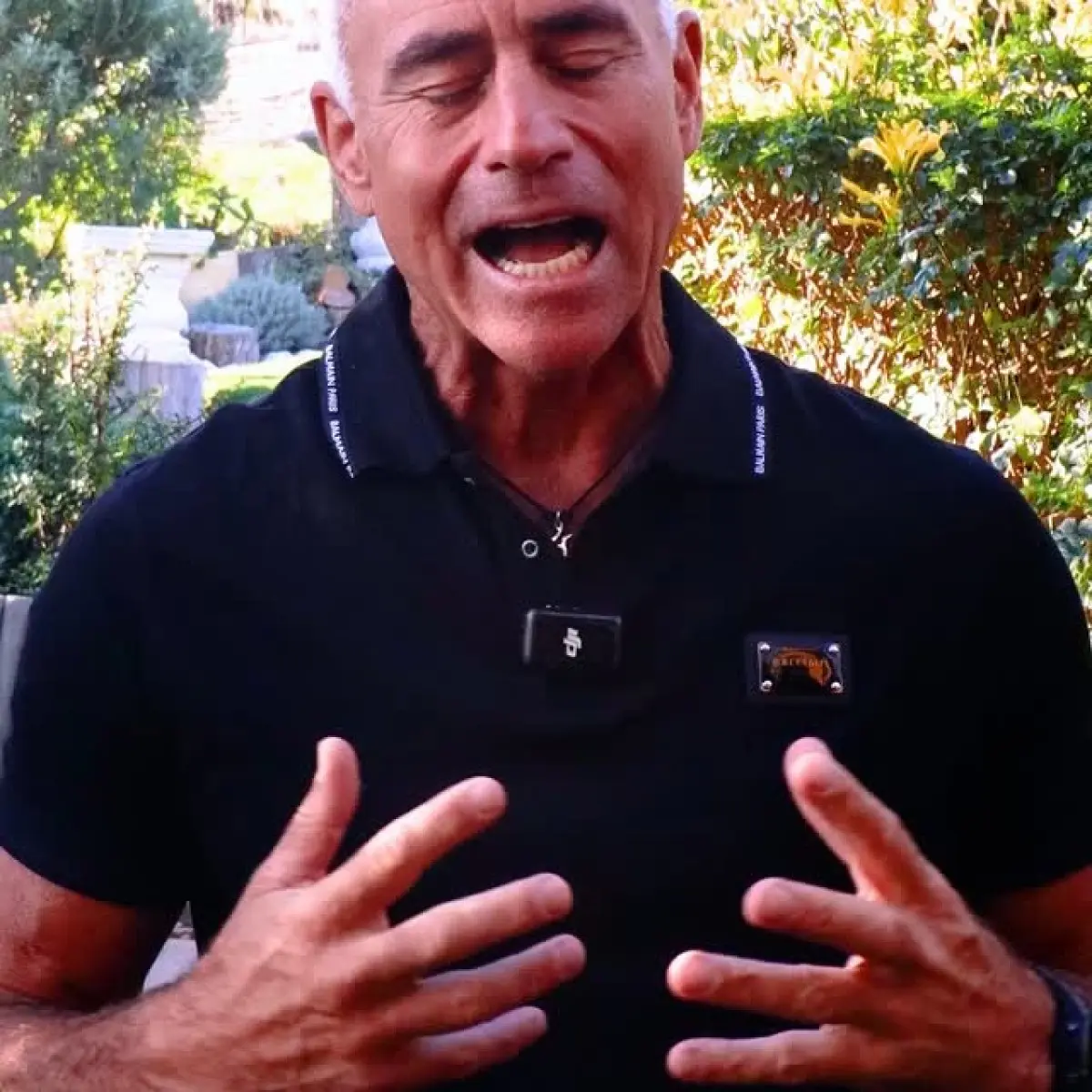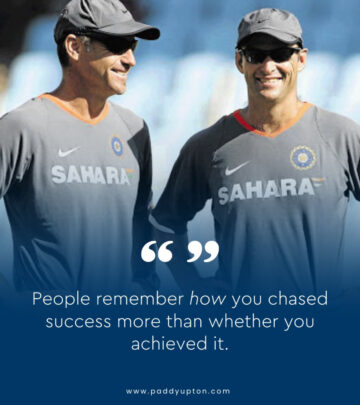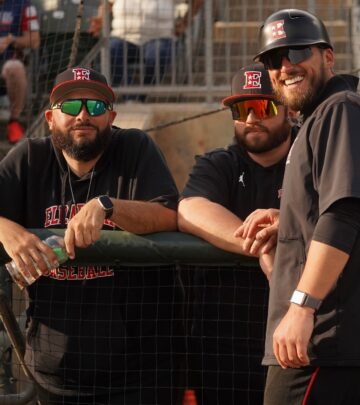Ego Drives Success: Aligning Goals For Team Triumph
Paddy Upton talks about how personal drive transforms into team success when ego is bridled ASAP.

Image: Instagram
Paddy Upton, renowned as The Barefoot Coach, has long been a vocal advocate for harnessing the power of ego while ensuring team unity remains paramount. In a recent post on Instagram, Upton stated, “Ego isn’t the enemy. It’s part of the game. It’s what drives us in the gym and at training. It’s what pushes us to get better.” This compelling message is a reminder for athletes and leaders alike that while individual ambition fuels performance, true success in team sports and leadership is achieved when personal goals align with the team’s objectives.
Balancing Ego And Teamwork
The Barefoot Coach’s recent insights highlight a fundamental truth in high-performance environments: ego is not something to be eradicated but managed. According to Upton, the smartest players understand that once they step into a team environment, they must channel their personal drive in service of the collective. This philosophy resonates particularly in the context of modern sports, where the balance between personal ambition and team dynamics is delicate. Upton emphasizes that where individual aspirations and team needs overlap, players can double down on their efforts, but when conflict arises, the team’s interest must come first.
Drawing on his two decades of experience across various sporting and coaching arenas, Upton reminds us that successful performance is shaped by moments of accountability and mutual support. His message is clear: what you do in those crucial moments builds a lasting reputation. Whether on the field or in the boardroom, aligning personal goals with team targets is key to developing a culture where every individual’s drive elevates the group as a whole.
Team Culture And Leadership
The idea that ego can be a constructive force when managed correctly also plays a significant role in leadership development. Upton’s approach to ego management is not only relevant for players on the field—it’s equally applicable for coaches, managers, and leaders in other domains. He explains that in high-pressure environments, such as sporting leagues or even corporate teams, leaders must instill a culture of accountability and collaboration. This involves a deep commitment to self-improvement while also recognizing when it is necessary to put the team’s needs ahead of individual ambitions. In effect, the leader’s role is to transform raw ambition into a cohesive team strategy.
This perspective is reinforced by Upton’s earlier social media engagements. In past Instagram posts, he discussed the importance of shifting focus from personal accolades to collective progress. One memorable post urged followers to comment ‘Ego’ to receive the full article on managing personal ambition while fostering a unified team culture. This interactive approach not only engages his audience but also underscores the practical importance of his message in everyday team settings.
Developing High-Performance Thinking
At the heart of Upton’s philosophy is a call for high-performance thinking that goes beyond individual prowess. He believes that preparation, resilience, and a clear-headed focus on team goals are the hallmarks of lasting success. For Upton, the mental game is just as critical as physical training. He argues that the mental fortitude required to navigate setbacks, adapt to changing circumstances, and continuously learn from both wins and losses is what truly differentiates top performers from the rest.
Upton’s ideas draw on both personal experience and his work with elite sports teams, where the integration of mental strategies into training routines has become essential. In one of his posts, he recalled working with the Indian men’s hockey team ahead of their Olympic campaign, emphasizing the importance of having concrete plans for when unexpected challenges arise. By proactively addressing the inevitability of setbacks, teams can transform potential stumbling blocks into opportunities for growth.
Ego, Preparation, And The Growth Mindset
Central to this discussion is the recognition that ego, when not constrained by team objectives, could lead to reckless ambition. Upton carefully positions ego as a double-edged sword: a source of personal drive that fuels improvement in the gym and during training, yet one that must be realigned when stepping into a team environment. The coach advises that the most effective athletes are those who can recalibrate their focus from individual glory to collective success. In doing so, they not only support their teammates but also create an environment where every member feels empowered and valued.
Furthermore, Upton’s message also speaks to the broader principle of ethical leadership in sports. He contends that true success is measured not just by the outcomes on the scoreboard but by the manner in which a team comes together. This is evidenced by his insistence that when individual agendas clash with the team’s needs, the intelligent choice is to place the group first. This ethical framework is vital in maintaining a healthy team culture, where mutual respect and responsibility are at the forefront of every decision.
The Barefoot Coach’s insights have resonated widely on social media, particularly among athletes and emerging leaders. His commitment to fostering a team-centric culture has sparked discussions on the critical role of mental preparation and ethical leadership in achieving high-performance outcomes. As Upton continues to share his philosophies through interactive posts and candid discussions, his message serves as both a motivational call to action and a practical guide for those navigating the complexities of team dynamics.
Paddy Upton’s emphasis on managing ego is a clarion call for aligning personal drive with collective goals. His insights remind us that while individual ambition is essential, true success in sports and leadership is driven by the willingness to put the team first. By managing ego effectively and investing in high-performance thinking, athletes and leaders can not only achieve their personal best but also elevate the entire team. This balanced approach ensures that when the pressure mounts, the focus remains on unity, growth, and ethical success.
Read full bio of Vidya Tadapatri



















